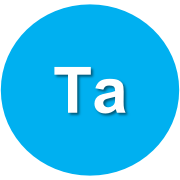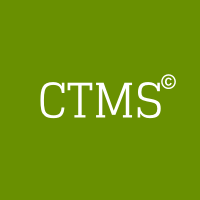Overview of this Talent Management Specialist Certification Program
Early career HR business partners must be proficient in six frequently used talent management practices.
Format
Online, Mentor supported, hands on project work.
Duration
6 months of access to the learning content, learning platforms and all resources.
Dates
Fee
Learning and certification exam package
$1400
How is Talent Management Specialist useful?
-
- Gain understanding of the six most frequently used talent management practices.
- Develop hands-on application skills.
- Rapid solution development using job aids and prebuilt tools.
- Ongoing development opportunities through HCG’s webinar and podcast series.
The CTMS Exam & Learning Package includes 6 courses. The courses cover most essential topics in four distinct phases of employee life-cycle: hiring, developing, managing, organizational effectiveness.
This courseware is designed, keeping in mind with the needs of talent management professionals to learn the material and maximize it in their work projects. Users have access to the HCG Learning Management Platform where they can access the courses listed below. Lessons include case studies, step-by-step guides, evidence-based models, webinars, projects, quizzes, and mentor support. Additionally, users have access to job aids and worksheets, which they can readily utilize in their work projects Read about our success methodology ►
Access duration for this learning package is 6 months.

Description
In this course, participants gain understanding of how talent management systems can create better organizations, better talent and better career. They gain knowledge of what talent management is, how organizations benefit from talent management, characteristics of a high impact integrated talent management system and industry practices in talent management. The course highlights the benefits and costly consequences of not focusing on TM practices.
In this course, participants build capability to:
- conduct a TM system effectiveness audit
- identify opportunities for integrating TM practices to meet a business need
- assist in the recruitment of evidence based TM professionals
- identify gaps in TM practices compared to industry benchmarks
Tools
This course gives participants access to various tools and worksheets, including:
- TM System Effectiveness Audit
- Industry Specific TM Practices

Description
In this course, participants will learn the principles of attracting high-potential and high performing candidates through integrated Talent Management (TM) practices. The course will demonstrate the importance of strategic talent acquisition programs in organizations and present the evidence on effective recruitment practices. Participants will gain knowledge about the steps involved in the talent acquisition process and the role of talent acquisition in a TM system. They will also learn about talent acquisition programs through case studies, understand the importance of employer branding and gain exposure to different talent acquisition methods.
In this course, participants will build the capability to:
- outline the key processes required to build a talent acquisition system
- draft a talent acquisition strategy by engaging stakeholders
- develop material for the talent acquisition process
- write a realistic job preview
- support the development of an employer brand
- conduct activities to promote the employer brand
- select the most appropriate talent acquisition method
- assist in using social media for talent acquisition
- evaluate the efficacy of the talent acquisition methodology
Tools
This course gives participants access to tools and worksheet, including:
- A Job Description Template
- A Guide to Defining Roles and Responsibilities of the Recruiting Team
- A Sample Realistic Job Preview
- A List and Description of the Top Job Portals

Description
In this course, participants gain knowledge about the goals of high impact hiring systems and the tools and methods used in the hiring processes. The course also builds an understanding of effective selection processes through case studies and examples. It also builds skills in monitoring and evaluating the quality of a hiring process.
In this course, participants build the capability to:
- gather requirements of the target job
- write a realistic job preview
- support the design of a multiple-hurdle candidate screening process
- support the administration of an employee selection system
- assist in the selection of assessments for screening job candidates
- monitor and evaluate the effectiveness of the employee selection system
Tools
This course gives participants access to tools and worksheets, including:
- Example of a Competency by Selection Method Matrix
- Fleishman’s Ability Taxonomy
- A Cheat Sheet for Selecting the Best Assessment Tool
- A Checklist for Designing a Hiring System
- A Guide for Using a Job Analysis Task list to Define the Selection Criteria
- Example of a KSA by Assessment Method Matrix
- Guidelines for Selecting Assessments for Hiring

Description
In this course, participants learn the steps required to design impactful training interventions. They will gain knowledge about learning theories that lead to sustained skill acquisition. The course includes examples and case studies to demonstrate the use of training to address unique organizational needs.
In this course, participants build the capability to:
- conduct a detailed training needs analysis
- support the design of a training intervention
- match the learning mode with the purpose and the audience
- engage the learner before, during and after the training
- design interventions to increase the transfer of training
- evaluate classroom and elearning courses
Tools
This course gives participants access to various tools and worksheets, including:
- Training Needs Evaluation – Checklist
- Vendor Offerings Evaluation – Checklist
- Level 1 Training Evaluation Form – Classroom
- Level 1 Training Evaluation Form – Elearning

Description
In this course, participants will learn about the dimensions of performance and how they relate to effectiveness. The participant will learn about the key decisions and practices that lead to accuracy and fairness in the appraisal process. They will understand the interdependencies between PM and talent management systems, and use this knowledge to design a high impact PM system. Participants will also learn about key considerations such as assessing team performance and evaluating the effectiveness of a PA system.
In this course, participants build the capability to:
- Support the development of a new performance appraisal (PA) system by
- developing questionnaires/interview guides to gather stakeholder’s input
- proposing the appropriate list of performance dimensions for a holistic evaluation
- proposing rating scale options to rate performance
- proposing mechanisms to promote fairness in the system
- outlining the process of administering organization-wide performance appraisals
- Support the maintenance of an existing performance appraisal system by
- providing proactive administrative support during the deployment of the PA processdesigning the evaluation
- process to assess the effectiveness of the PA system
- gathering data to evaluate the effectiveness of the PA system
Tools
This course gives participants access to various tools and worksheets, including:
- A Manager’s Guide to Giving Effective Performance Feedback
- A Manager’s Guide to Informal Employee Development Activities
- Performance Appraisal Methods for Different Types of Teams – A Guide
- Performance Appraisal Tools – Rating Scale
- ComparisonTM System Effectiveness Audit

Description
In this course, participants will learn about the validated models of team formation and characteristics of high impact teams. They will also learn to conduct a team diagnosis and the steps required to promote team effectiveness. This course includes materials on the characteristics of virtual teams, self-managed teams and the impact of team diversity on team effectiveness.
In this course, participants build the capability to:
- help conduct a team diagnosis
- advise a team on improving their effectivenesssupport the
- formation of a new team
- assist in the selection of team members
- identify an appropriate type of team training
- assist in the design of team training
- evaluate the effectiveness of a team
Tools
This course gives participants access to various tools and worksheets, including:
- Guidance for Selecting the most Appropriate Team
- Training Intervention
- An Instrument to Conduct a Team Diagnosis
- Guidance for Defining and Assigning Team Roles
- A Team Leader Skills Questionnaire
This learning and certification package includes the training segments and a certification exam.
Certification Requirements
-
- Complete the learning segments listed in the training tab, including the accompanying mandatory webinars, and quizzes.
- Complete projects achieving a minimum score of 70%
- Comprehensive Exam
- Take a comprehensive exam covering the five topics and achieve a minimum score of 70%.
– Computer-Based Testing (CBT)
– Multiple-choice questions selected based on expert panel evaluations
All certifications are valid for 3 years. To maintain the certification credentials, you must stay current in this area of expertise, build upon your knowledge, and grow as a professional in your field. Recertification requires retaking the exam.
How is Talent Management Specialist useful?
Who are the faculty for this Talent Management Specialist course?
Course reviews
Am I eligible?
Talk to an expert
PARTICIPANT’S COMMENTS
What I liked most about the HCG approach is the support and feedback that the team and fellow trainees provided. I also Iiked the ease of use of the platform for effective communication. The other part is the flexibility to learn the material and work on the assignments in my own time.
________________________________
Am I Eligible?
Best suited for
-
- HR generalists/business partners
- Talent management consultants
- Learning and development professionals
- Coaches
Similar Courses
The Faculty for this Talent Management Specialist Learning Package

Shreya Sarkar-Barney. Ph.D.
TALENT MANAGEMENT Specialist
Learning and Certification Exam Package
Fee: $1400
TALENT MANAGEMENT SPECIALIST
Learning Package only
Fee: $1050
TALENT MANAGEMENT SPECIALIST
Certification Exam only
Fee: $450

